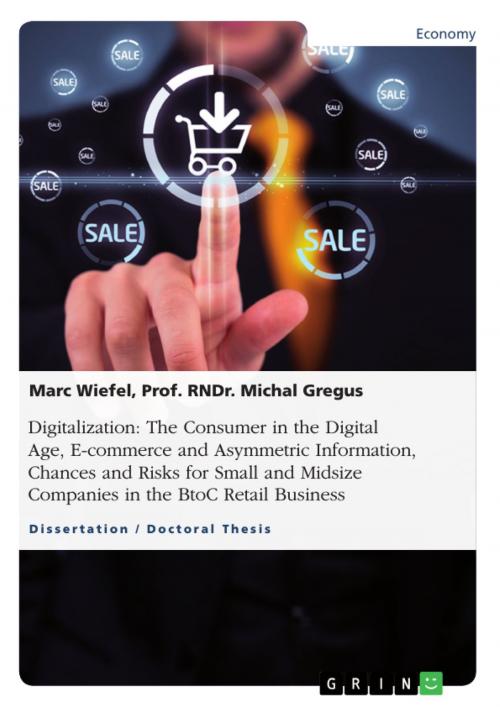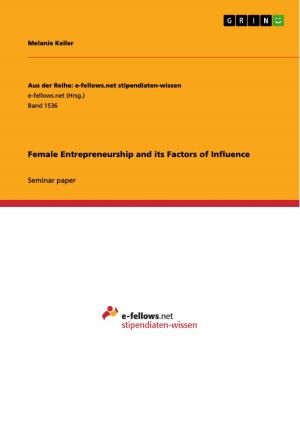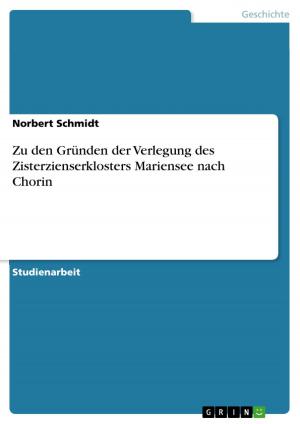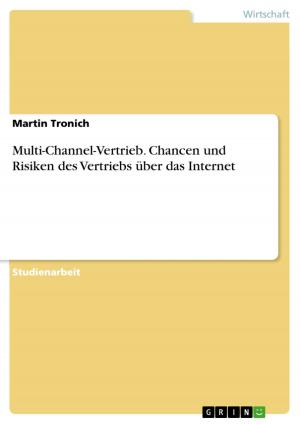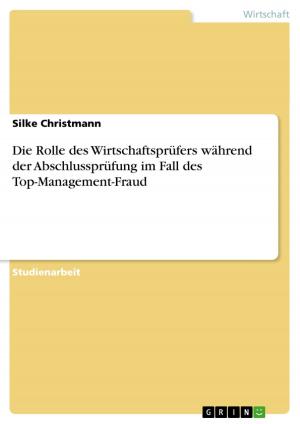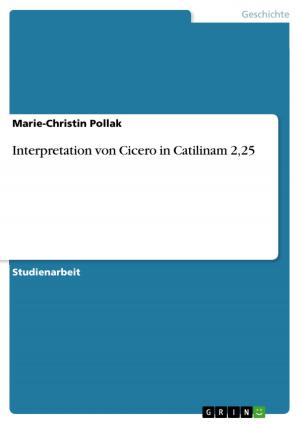Digitalization: The Consumer in the Digital Age, E-commerce and Asymmetric Information, Chances and Risks for Small and Midsize Companies in the BtoC Retail Business
Business & Finance, Management & Leadership, Management| Author: | Marc Wiefel, Michal Gregus | ISBN: | 9783668272224 |
| Publisher: | GRIN Verlag | Publication: | August 9, 2016 |
| Imprint: | GRIN Verlag | Language: | English |
| Author: | Marc Wiefel, Michal Gregus |
| ISBN: | 9783668272224 |
| Publisher: | GRIN Verlag |
| Publication: | August 9, 2016 |
| Imprint: | GRIN Verlag |
| Language: | English |
Doctoral Thesis / Dissertation from the year 2016 in the subject Business economics - Business Management, Corporate Governance, Comenius University in Bratislava (Management), language: English, abstract: The present work explores the impact of the global megatrend of digitalization on the business model of small and midsize companies, especially on retail. Fundamentally, the revolutionized search and purchasing behavior of consumers is in the center of the analysis. Businesses around the world need to adapt to the digital consumer, otherwise they will simply be consolidated. The core question this work tries to answer, is the further development of online purchase behavior, precisely the hypothesis, that only online purchase will stagnate or even slow down for certain product categories. In order to have a better understanding of the current situation among small and midsize companies on the knowledge about digitalization, an online survey with more than 100 participating leaders from retail companies has been executed. The main part for discussing the hypothesis is based on the model of asymmetric information between buyers and seller, the Principal Agent Theory by Georg Akerlof. Information asymmetry is the key to understand different aspects that impact on e-commerce. Key leavers (selected) to influence information search and purchase are big data, social isolation, cyber crime and aggressive marketing. One of the conclusions is, that The Principal Agent Theory, developed quite a long time before digitalization began, is still valid and there are different pros and cons in 'the old' and the digital world, in regard to asymmetric information. Truly digitalization is unstoppable, but for certain products and industries, online purchase behavior will stagnate or decrease. The model of asymmetric information permits clear recommendations and guidance for small and midsize companies to evaluate urgency to adapt digital consumer purchase behavior. Key words: digitalization, e-commerce, digital convergence, information asymmetry, Principal Agent Theory, digital consumer, omni-channel retail
Marc Wiefel begann 1992 sein Studium der Betriebswirtschaftslehre an der Universität Trier. Im Rahmen des europäischen Austauschprogramms ERASMUS studierte er an der französischen Grande Ecole EDHEC in Lille, Frankreich. Seinen Abschluss zum Diplomkaufmann erlangte er im Dezember 1997. Seine berufliche Laufbahn begann er 1998 bei der BASF in Barcelona (Spanien) als Export- und Produktmanager. Im Jahre 2001 wechselte er nach München (Deutschland) zur BSH Bosch und Siemens Hausgeräte GmbH, wo er verschiedene Aufgaben betreute und heute für das globale Marketing der Marke Neff verantwortlich ist.
Doctoral Thesis / Dissertation from the year 2016 in the subject Business economics - Business Management, Corporate Governance, Comenius University in Bratislava (Management), language: English, abstract: The present work explores the impact of the global megatrend of digitalization on the business model of small and midsize companies, especially on retail. Fundamentally, the revolutionized search and purchasing behavior of consumers is in the center of the analysis. Businesses around the world need to adapt to the digital consumer, otherwise they will simply be consolidated. The core question this work tries to answer, is the further development of online purchase behavior, precisely the hypothesis, that only online purchase will stagnate or even slow down for certain product categories. In order to have a better understanding of the current situation among small and midsize companies on the knowledge about digitalization, an online survey with more than 100 participating leaders from retail companies has been executed. The main part for discussing the hypothesis is based on the model of asymmetric information between buyers and seller, the Principal Agent Theory by Georg Akerlof. Information asymmetry is the key to understand different aspects that impact on e-commerce. Key leavers (selected) to influence information search and purchase are big data, social isolation, cyber crime and aggressive marketing. One of the conclusions is, that The Principal Agent Theory, developed quite a long time before digitalization began, is still valid and there are different pros and cons in 'the old' and the digital world, in regard to asymmetric information. Truly digitalization is unstoppable, but for certain products and industries, online purchase behavior will stagnate or decrease. The model of asymmetric information permits clear recommendations and guidance for small and midsize companies to evaluate urgency to adapt digital consumer purchase behavior. Key words: digitalization, e-commerce, digital convergence, information asymmetry, Principal Agent Theory, digital consumer, omni-channel retail
Marc Wiefel begann 1992 sein Studium der Betriebswirtschaftslehre an der Universität Trier. Im Rahmen des europäischen Austauschprogramms ERASMUS studierte er an der französischen Grande Ecole EDHEC in Lille, Frankreich. Seinen Abschluss zum Diplomkaufmann erlangte er im Dezember 1997. Seine berufliche Laufbahn begann er 1998 bei der BASF in Barcelona (Spanien) als Export- und Produktmanager. Im Jahre 2001 wechselte er nach München (Deutschland) zur BSH Bosch und Siemens Hausgeräte GmbH, wo er verschiedene Aufgaben betreute und heute für das globale Marketing der Marke Neff verantwortlich ist.
